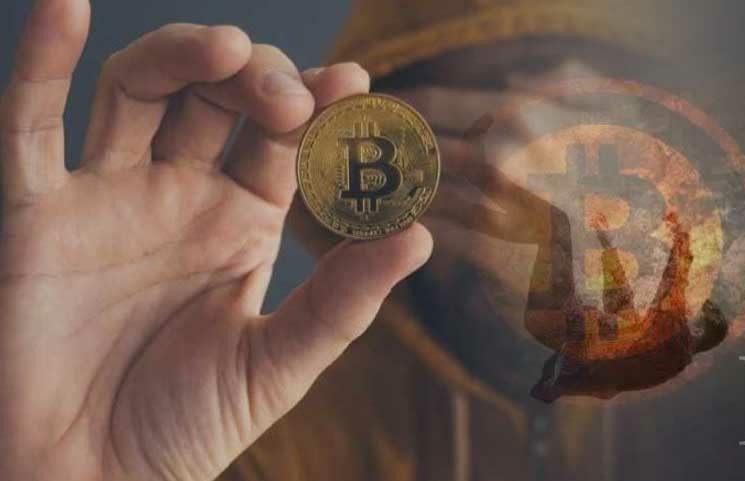
Are the ‘Bitcoin Will Die' Claims Valid? Or Will Bitcoin's Value Prove People Dead Wrong About BTC's Future
Inquiring minds want to know if Bitcoin will ever recover and rise again from its historic crash?
The amount of ‘bitcoin is dying‘ forecasters in the cryptocurrency ecosystem continues to see piggy-backers mount up daily, all echoing the sentiment that BTC has no bounce back rebound ability to ever go up in a value again… mmmm …. let's take a minute to let that sink, and see if that is a skewed bone-headed outlook or a sheer bone-chilling truth by expanding upon the current lay of the landscape of Bitcoin's past, present and future.
Depending upon your entrance and current exposure into the crypto market, it may not be looking so well during a prolonged bear market season dating back to December 2017 when BTC/USD exchange rate value reached $19,891 and the coin market cap was $834 billion. While the hibernating nature of bears may seem like ‘bitcoin is dying' or not looking so well, which has been the situation for a long while, now – may only tell a half-truth, which is often more misleading than a lie itself.

Even the top cryptocurrencies such as Bitcoin and Ethereum can't seem to recover and come anywhere close to their all-time highs. While the crypto craze did happen, and it dominated 2017, it appears to be over, and many have already proclaimed that Bitcoin is dead. Others are calling it a bubble, or worthless, with even some of its former supporters slowly giving up on the largest crypto asset known for its store of value, medium of exchange and unit of account qualities.
But, is there truth in these claims? Are there hidden motives in wanting to see Bitcoin die? If it is actually worthless, then why did it manage to reach the heights it reached, in the first place? The more questions people ask, the more it seems that Bitcoin may not actually be dead and that this is just another attempt to ‘kick it when it's down.' After all, Bitcoin has been proclaimed dead countless times in the last decade, with the coin making a comeback every single time, no exceptions. Why would this time be any different?
Most people fail to acknowledge that bitcoin's blockchain functions on its own, and waits for no one providing it has network computational power and users actually using the system.
With that in mind, let's see why people believe that the number one digital currency is gone, what are their arguments, and why are they dead wrong in their asinine assumptions.
Top 2019 Reasons Why Crypto Critics Think Bitcoin is Dying, Dead or Will Fall into the Graveyard

While the ‘bitcoin obituaries' regarding BTC being obsolete number is well over 350 prominent headlines and stories to count per 99bitcoins, for now, here are 11 trending reasons of why critiques of the leading flagship cryptocurrency asset, Bitcoin, will die. Most so-called pundits and experts will merely focus on the price of bitcoin to determine how much life-force the blockchain's number one digital asset and virtual currency has, but by now all should realize that is a flimsy metric to measure the future of finance's programmable money.
We will be updating this as more bitcoin fatality feedback and deadly details become available.
Erik Finman says so

Erik Finman made a name for himself back when he was only 12, although people did not realize it until much later. At the young age of 12, Finman purchased Bitcoin when its price was only $12 per coin. This was back in 2011, and he used the money he received from his grandmother. This single decision made him a millionaire only a few short years later.
Since then, Finman has seemingly changed his attitude towards crypto, stating that the craze is over. He even said that Bitcoin is mostly dead, although he allowed the possibility of one or two more bull runs before the coin finally fully dies.
As for him, he was simply at the right place at the right time, buying Bitcoin before people even knew about its existence. However, while this was quite a forward-looking and smart move to make back in the day, it hardly makes him a financial expert. It is more likely that his bearish attitude comes from disappointment due to the dropping prices that butchered the crypto space in 2018.
Finman's exact net worth is not known, but it is clear that he is nostalgic for the day before the prices skyrocketed, wishing that Bitcoin is still unknown to the masses.
Bitcoin & Tether Sharing the Same Fate

Over the years, many have attempted to establish some sort of link between Tether and Bitcoin, even though these are two completely different projects. The fact that Tether had a number of controversial issues in 2018 did not help, and there were claims that problems surrounding the stablecoin may mean trouble for Bitcoin as well. However, Tether survived the controversies, and it is still among the largest coins in the crypto space. Furthermore, all claims that it could somehow damage Bitcoin are quite a stretch these days, just as they were back then.
Paul Krugman

Paul Krugman is a well-known economist from the US, and in regards to crypto, he has become known as a large opponent of Bitcoin. He called it ‘evil,' and his negative attitude expanded to include all digital currencies, calling the crypto space a ‘cryptocon.'
However, back in the day, he also claimed that the internet would have pretty much no effect on the economy, and you can tell how correct that prediction was. Simply put, it might be best not to take tech advice from Krugman, even if he is a Nobel Prize winner.
Institutions Would Never Go Pro Cryptocurrency

For a long time, one of the popular arguments against cryptocurrencies is that they cannot survive without institutional money and that institutions would not go anywhere near cryptos. The biggest reason for this was believed to be high volatility, and it is true, Bitcoin has been extremely volatile throughout its history. So, with numerous other things such as stocks, real estate, commodities, and alike, lying around, why would they go crypto?
As stated, Bitcoin was quite volatile in its lifetime. However, it was also extremely valuable, and each new bull run made it more valuable than the last one. The claim that institutions won't join the space is wrong, and there are already numerous examples of this. The New York Stock Exchange, for example, has already prepared a Bitcoin futures exchange, Bakkt, for launch. The launch was delayed due to the government shutdown, but that has nothing to do with Bitcoin. Banks around the world have started using Ripple products, which are also fueled by a cryptocurrency XRP. While this is not Bitcoin, it is proof that the crypto sector does attract institutional investors, and that they are certainly not scared of it.
Bitmain's IPO

The Bitmain IPO is a long-anticipated event that was believed to have the power to change the crypto space forever. The Hong Kong-based firm is worth billions of dollars, and if the IPO occurs, many are convinced that it would change the perception of the entire sector. However, the mining company failed to hold it, and Hong Kong seems to be hesitant about it these days. Furthermore, there were also reports that the company might cut its staff in half. However, even if this does happen, it does not mean anything regarding Bitcoin, and Bitmain's largest mistake might end up being the BCH investment.
High volatility

As mentioned earlier, volatility is often used as one of the biggest arguments against Bitcoin, with those who use it claiming that Bitcoin must die because it is simply too volatile. However, what they fail to remember is that Bitcoin was always volatile, from the moment it received its first value. If volatility is a deal-breaker, how did Bitcoin manage to survive for this long in the first place?
Of course, high volatility means riskier investments, but there are always people willing to take that risk. This is why people tend to gamble so much. In fact, volatility, which many see as the biggest threat to Bitcoin's existence, actually attracts the gambling type of investors. The very idea that they might earn massive gains if they invest at the right time is extremely attractive, even if it means potential losses.
Of course, gamblers are investments purely for their own entertainment, but that is only one example of how the cash flow can continue, despite the low prices. In the world of traditional investing, there are OTC markets, which include stocks with only limited information regarding the actual company. Stocks can run quickly whenever there are new developments such as partnership announcements, and it is possible to end up being a victim of pump-and-dump schemes, where stocks will drop just as quickly as they rose.
However, in OTC markets, as well as in crypto markets, there are profits to be made, and when there are potential gains — there are always investors willing to risk it.
No one is interested in Bitcoin anymore?

Another popular claim is that Bitcoin is dead due to the lack of interest. Those who are quick to criticize BTC tend to claim that the drop in value caused investors to lose interest and faith in digital currencies and return to traditional investing. However, if that is the case, why is the Bitcoin subreddit constantly seeing growth, with over 1 million subscribers at this point? Most of them started following it during the last year when the crypto winter was at its strongest.
This is certainly not proof for lack of interest. Then, there are blockchain and Bitcoin courses offered to people around the world. Some of them can be taken online, while others have reached some of the largest and most respected universities.
Bitcoin and crime

It is true that Bitcoin has been used by criminals in the past, and that its anonymity (which is actually more like pseudonymity) attracted those wishing to offer or purchase illegal goods and services. However, the same can be said for fiat currencies such as the USD, EUR, GBP, and others. While Bitcoin did have a connection to illegal markets, drugs, and alike — it is still simply an asset that criminals used to use, only one among many others.
Others claim that Bitcoin is being used for financing terrorists or money laundering. However, there are many more established entrepreneurs and venture capitalists who use it and back it as well. Even politicians, such as the prime minister of Malta, or venture capitalists like Tim Draper, openly support crypto and Bitcoin in particular.
Meanwhile, a massive number of USD bills have traces of drugs such as cocaine on them. That does not mean that everyone who uses them is a drug user or trafficker. The same can be said about Bitcoin.
What About Bitcoin's Security and Network Protection?

Another argument for why Bitcoin is dead is that it is not safe, or at least not as safe as other assets. And yes, huge amounts of Bitcoin were stolen from the exchanges last year, but that does not mean that Bitcoin itself is not safe or secure. It all comes down to how the users protect it, and leaving the funds on a centralized exchange that can be hacked and robbed is certainly not the proper way to do it.
Think of Facebook and its massive data breaches, often affecting thousands, if not millions of people. The company still managed to remain successful. The same can be said for Equifax, or any other major firm that got breached, as they are often targeted by hackers. This has happened even to banks, hospitals, and countless other institutions from all industries. The attacks and thefts are common these days, and while it is unfortunate, it is not proof that Bitcoin is dead.
Biggest Bitcoin Basher and Bully, Nouriel Roubini

Finally, there is Nouriel Roubini, one of the greatest Bitcoin critics out there. The thing to understand about Roubini is that he worked as a consultant for numerous governments and banks. In fact, he earned millions of dollars by doing so. Coincidentally, banks are the ones that have to lose the most if cryptocurrencies go mainstream. With that in mind, it is not really surprising for Roubini to make all sorts of claims, since his own financial situation might be endangered by digital currencies.
In other words, he has a reason to be against them, and the reason is not the fact that Bitcoin is dead, but the fact that it is a disruptor of traditional finances. Roubini never mentioned the huge gains that investors have seen due to their investments. He only focuses on the bad aspects, which is only half of the story.
What Will Be the Final Bitcoin Nail in the Crypto Coffin? Will You Attend the Future of Finance's Funeral?

What's your take on the possibility of a doom and gloom digital asset demise? How will the final fatal blow to bitcoin fare? Can the electronic cash payment system survive extinction and termination of existence or was it always written in the stars for bitcoin to meet is maker(s) as a plausible attempt at a decentralized financial world only to fail after a decade long run?
Hopefully this sheds some light on the ever-evolving question of ‘will bitcoin ever die' after an incredible ten year run and counting. For further reassurance and confidence in the fate of bitcoin's future, as most are genuinely curious if the bitcoin price will ever recover and go back up again in value, check out all the $BTC price predictions from industry insiders and traders to see why they are so bullish on bitcoin's future and won't be attending a BTC funeral anytime soon.
This is one piece we hope to get a bunch of community insights regarding the potential downfall, destruction and/or dissolution of the one and only, Bitcoin.








